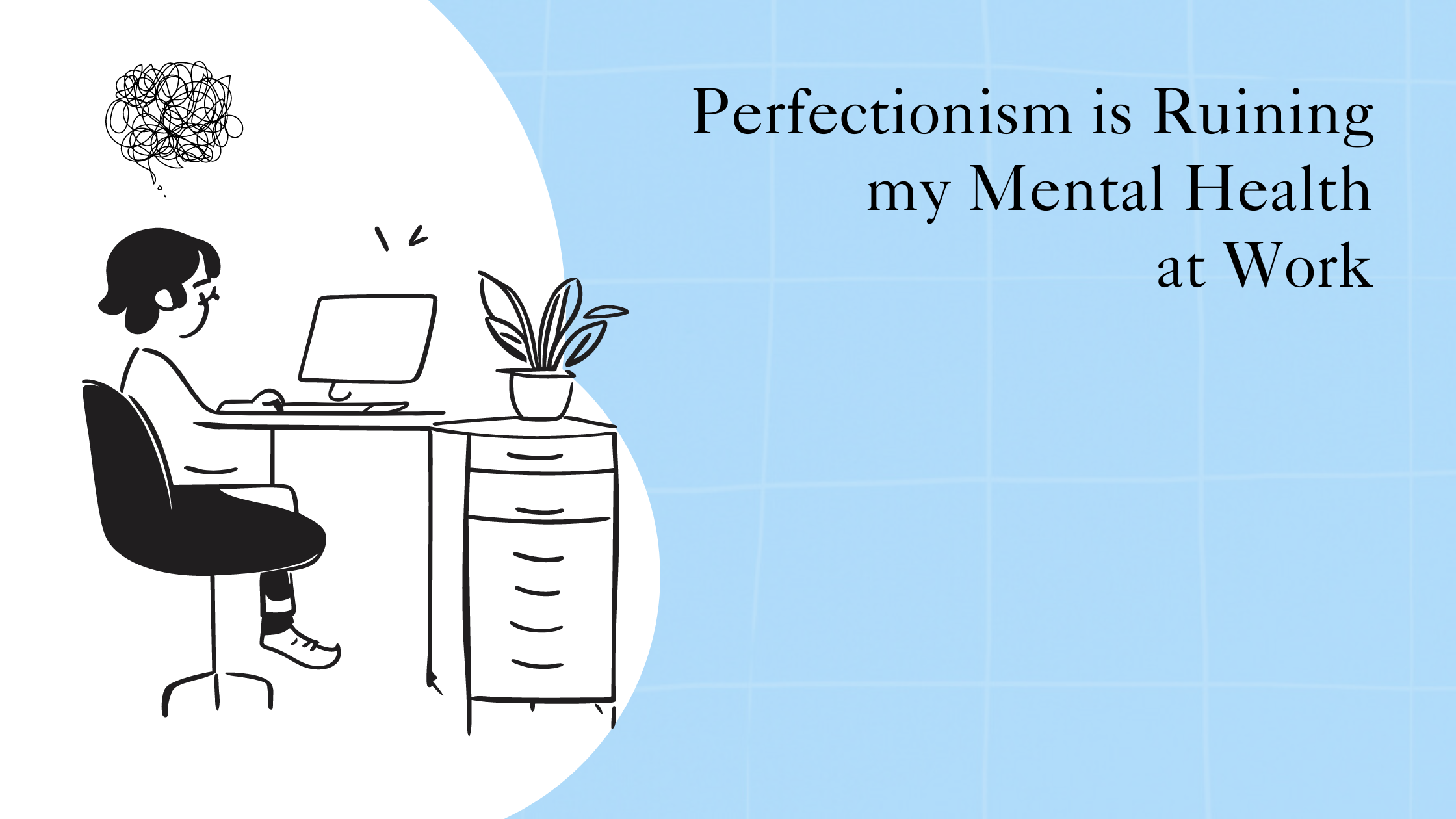Perfectionism is often perceived as a positive quality, synonymous with rigor and excellence. However, when it becomes excessive, it can have harmful consequences on mental health, particularly in the workplace. In this article, we'll explore the signs of perfectionism in the workplace, its impact on mental health and strategies for better managing it.
1. Signs of Perfectionism at Work
Unrealistic Expectations
Perfectionists tend to set very high standards for themselves, often impossible to achieve. They may also expect the same perfection from their colleagues, which can lead to tension and frustration (reference).
Fear of Failure
La peur de ne pas atteindre la perfection peut paralyser les perfectionnistes. Ils évitent de prendre des risques ou de s’engager dans des projets par crainte de l’échec, ce qui peut limiter leur croissance professionnelle (reference).
Procrastination
Ironically, perfectionism can lead to procrastination. The fear of not doing things perfectly can drive perfectionists to delay tasks indefinitely (reference).
2. Impact on Mental Health
Stress and Anxiety
Perfectionism generates high levels of stress and anxiety. The constant pressure to achieve unrealistic standards can be mentally and physically exhausting.
Burnout
The relentless pursuit of perfection can lead to burnout. Perfectionists often work long hours without taking breaks, which can lead to chronic fatigue and loss of motivation.
Low Self-Esteem
Perfectionism can also affect self-esteem. Perfectionists tend to focus on their failures rather than their successes, which can diminish their self-confidence and personal satisfaction.
3. How to Deal with Perfectionism
Setting Realistic Goals
It's important to set achievable, realistic goals. This takes the pressure off and allows you to focus on concrete progress rather than unattainable perfection.
Accepting Imperfection
Accepting that imperfection is part of the work process is essential. Nobody is perfect, and it's normal to make mistakes. The important thing is to learn from these mistakes and keep moving forward.
Practicing Self-Compassion
Treating yourself with kindness and recognizing your efforts is crucial. Self-compassion reduces stress and improves self-esteem.

4. How to Protect Yourself from Perfectionists at Work
Establish Clear Boundaries
It's important to set clear boundaries with perfectionists. Explain your own standards and expectations, and make sure they understand that you can't always meet their unrealistic demands.
Effective Communication
Communication is the key to dealing with perfectionists. Be open and honest about what you can and can't do. Don't hesitate to voice your concerns if you feel their expectations are unreasonable.
Looking After Yourself
Make sure you take care of your own mental health. Take regular breaks, practice relaxation techniques and don't hesitate to seek support if you need it.
Seeking Support
If a colleague's perfectionist behavior is seriously affecting your well-being, don't hesitate to talk to a superior or a human resources professional. They can help you find solutions to manage the situation.
Conclusion
Perfectionism can have serious consequences for mental health in the workplace. By recognizing the signs of perfectionism and adopting strategies to manage it, it is possible to reduce its negative impact and regain a healthy balance. If perfectionism is seriously affecting your mental health, don't hesitate to seek professional help.
We encourage you to give these tips a try, and to e-mail us your results. If you have any questions, please contact us here or visit our Q&A.
References
Stoeber, J. (2018). The psychology of perfectionism: An introduction. In J. Stoeber (Ed.), The psychology of perfectionism: Theory, research, applications (pp. 3–16). Routledge/Taylor & Francis Group.
Antony, M. M., & Swinson, R. P. (2009). When perfect isn’t good enough: Strategies for coping with perfectionism. New Harbinger Publications.
Egan, S. J., Wade, T. D., Shafran, R., & Antony, M. M. (2014). Cognitive-behavioral treatment of perfectionism. Guilford Publications.
Frost, R. O., Marten, P., Lahart, C., & Rosenblate, R. (1990). The dimensions of perfectionism. Cognitive Therapy and Research, 14(5), 449-468.
Shafran, R., & Mansell, W. (2001). Perfectionism and psychopathology: A review of research and treatment. Clinical Psychology Review, 21(6), 879-906.
Hewitt, P. L., & Flett, G. L. (1991). Perfectionism in the self and social contexts: Conceptualization, assessment, and association with psychopathology. Journal of Personality and Social Psychology, 60(3), 456-470.
Neff, K. D. (2011). Self-compassion: The proven power of being kind to yourself. William Morrow.
Dweck, C. S. (2006). Mindset: The new psychology of success. Random House.
Gilbert, P. (2009). The compassionate mind: A new approach to life’s challenges. New Harbinger Publications.
Stoeber, J. (Ed.). (2018). The psychology of perfectionism: Theory, research, applications. Routledge/Taylor & Francis Group.

